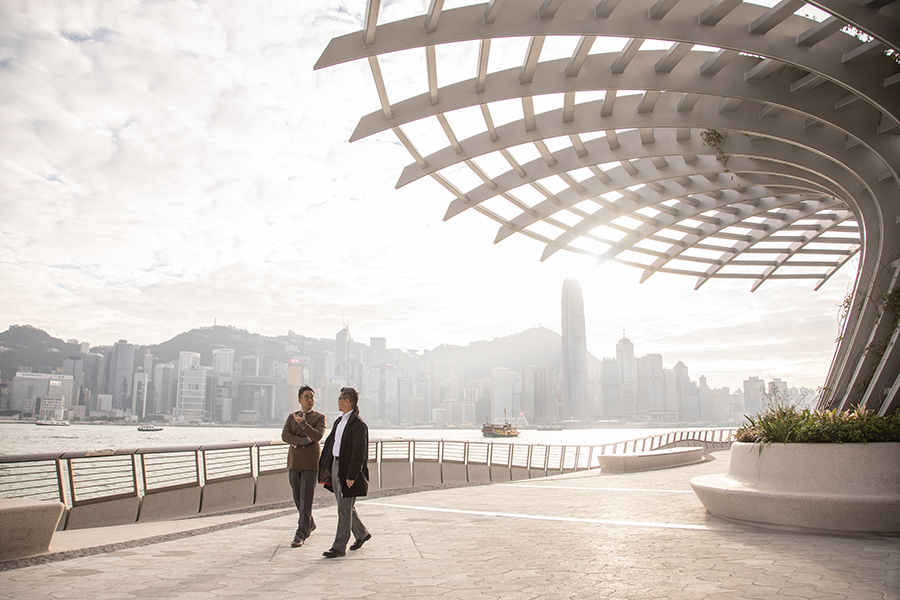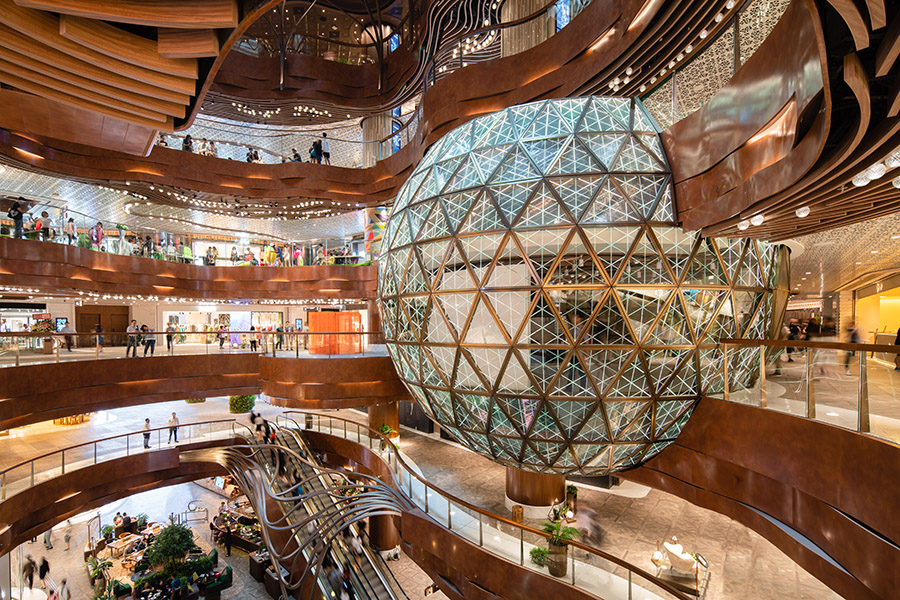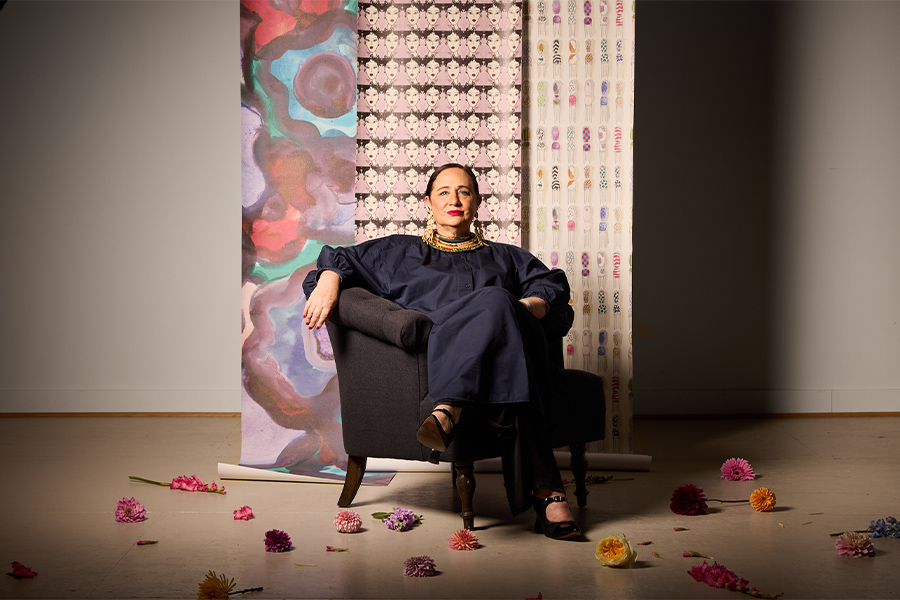With his father and grandfather responsible for Hong Kong’s New World Centre, a multiuse urban development combining hospitality, residential, and retail, Adrian Cheng’s fate was sealed from a young age. “I was witnessing the inner workings of pioneering real estate development,” he says. “My interest was somewhat innate.”
Today, he’s the CEO of New World Development and is motivated to “create a new class of innovative cultural environments and experiences that speak to the next generation.” He also founded K11 in 2008, a venture that merges art and commerce, and has spawned art malls throughout China. “People are no longer satisfied with the traditional art viewing or shopping mall experiences,” he says. “[I want] to deliver a destination where consumers can access the many layers of culture at once.” Here, Cheng shares how he is creating his own legacy with ambitious projects that redefine living and hospitality.
What did you want to create with the $2.6 billion redevelopment of the Victoria Dockside in Hong Kong into an art and design district with a Rosewood Hotel, office space, high-end residences, and retail?
Adrian Cheng: Victoria Dockside sits on the land that housed New World Centre. I wanted to build upon the site’s distinctive heritage and reinvigorate the district for the modern era. Working with 100 creative powers, we spent 10 years crafting the Silicon Valley of Culture—a destination that not only showcases the most advanced and exemplary cases of architecture, art, design, retail, and hospitality, but also shifts Hong Kong’s center of gravity and brings to the city the next generation of immersive and engaging lifestyle experiences.

Curved awnings shade benches at Victoria Dockside’s Avenue of the Stars in Hong Kong
How do you find creative partners for K11?
AC: For K11 Musea, specifically, which sits in Victoria Dockside, we took an ambitious approach and engaged a diverse coalition of leading designers, architects, and artists from all around the world, each of which oversaw a distinct element of the destination. We enlisted [architecture practice] Kohn Pedersen Fox (KPF) to help us ensure that our vision was being executed across all areas.
On a more macro level, we look to collaborate with those who align with our vision of empowering culture and creativity, supporting social innovation, and creating a sustainable way of living that meets the needs of the new generation. We are currently working with the award-winning Shigeru Ban and Ole Scheeren on the Hangzhou Wangjiang New Town project, which will introduce to the city a new K11 Art Mall, K11 Atelier (office buildings designed for the new culture of work-life integration), and luxury serviced apartments K11 Artus.
What led to your decision to restore the city’s State Theatre?
AC: It is an architectural marvel that serves as a leading example of postwar Hong Kong construction. With this preservation project, we want to restore this legendary destination for art and culture and create a new landmark for the community. Similar to Victoria Dockside and K11 Musea, the intention is to provide an opportunity for locals and visitors alike to engage in activities and conversations that preserve the gifts of the past while inspiring new ideas and innovations.

A collaboration between KPF, AB Concept, and LAAB Lighting, the atrium at K11 Musea in Hong Kong features curved aluminum panels
How are you changing the residential landscape with the Pavilia Farm?
AC: It is clear that the future of the built environment is one that puts both environmental and human health at the forefront. It is no longer enough that a building simply does not have a negative impact on the planet or its people—today, it must actively promote the longterm betterment of the world. The Pavilia Farm was inspired by this movement and is a testament to our New World Sustainability Vision 2030, which aims to bring about greener and healthier communities. By providing residents with access to functional green space—a scarce amenity in Hong Kong—the Pavilia Farm allows city-dwellers to grow their own food and access the many benefits associated with this exercise.
How do you plan to continue to make your mark?
AC: We want to initiate a holistic and innovative ecosystem of environments and experiences that champion a new type of lifestyle that is forward-thinking but also honors the past. By promoting this perspective among a new generation of innovators and advocates, we hope to inspire in them the same entrepreneurial spirit.

Modeled after Victoria Dockside, the Prince Bay K11 mixed-use development is set to be a cultural hub in Shenzhen, shown in a rendering
This article originally appeared in HD’s August 2021 issue and was updated July 2022.
More from HD:
NoMad London Captures a New York Sensibility
What I’ve Learned Podcast: Naomi Heaton
4 Wellness-Driven Spaces Offer a Dose of Respite


